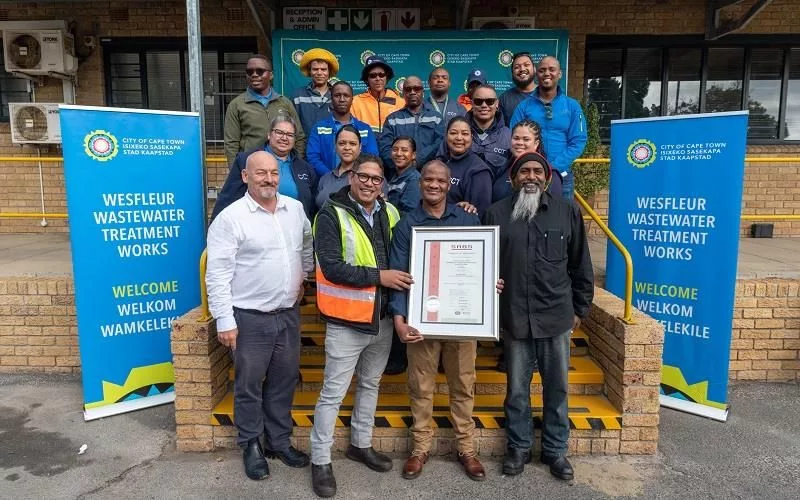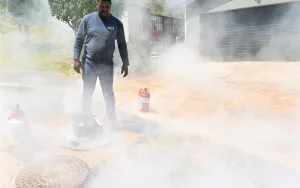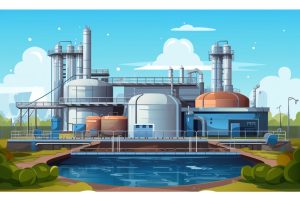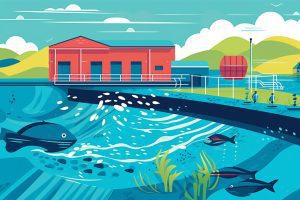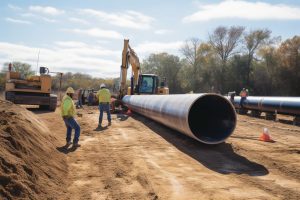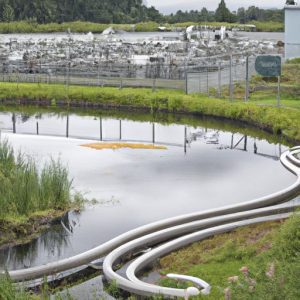Cape Town’s Melkbosstrand and Wesfleur wastewater treatment facilities have received the globally recognised ISO 9001 certification, highlighting the city’s commitment to highquality management standards and providing superior sanitation for residents and clients. The certification also enhances customer trust, promotes effective complaint resolution, and encourages process improvement and ongoing optimization. The facilities are also striving towards ISO 50001 certification for energy efficiency, and the city plans to acquire more ISO 9001 certifications for its other wastewater treatment facilities. This underscores the city’s dedication to environmental stewardship and its inhabitants.
The City of Cape Town has submitted a comprehensive report on marine outfalls permits to the Minister of Fisheries, Forestry and Environment, showcasing their commitment to transparency. The report includes a summary of public involvement, comments on marine outfalls, and gathered inputs. The City is also investing heavily in infrastructure, with a budget increase of 226% to improve wastewater treatment and upgrade sewers. Short, medium, and longterm options are being considered for marine outfall operations, with public participation and transparency driving improvements.
Proactive Measures Against Pollution: Unmasking Illicit Sewer and Stormwater Connections Through Smoke Testing
Smoke testing is a technique used to identify illegal connections to sewer systems that worsen pollution and sewage overflows. The Water Pollution Control Unit has developed this innovative approach to tackle urban water pollution, especially during the winter season. By pumping smoke into sewer pipes, the surveillance team can locate improper connections or weaknesses in the infrastructure and notify owners for required repairs. This initiative has produced promising results, and the City plans to continue its efforts to protect the environment and water resources.
Cape Town Mayor Geordin HillLewis announced a massive R5.2 billion upgrade project for the Potsdam Wastewater Treatment Works, the secondlargest infrastructure project in the Western Cape. The project aims to restore the environmental health of Milnerton Lagoon and increase the facility’s capacity.
On June 19, 2023, various departments and agencies, including the National Department of Water and Sanitation (DWS), Western Cape Environmental Affairs, Development Planning, and Department of Agriculture, Forestry and Fisheries conducted a joint operation to audit the Potsdam Wastewater Treatment Works and other facilities. The main objective of the operation, led by Ms. Boniswa Hene, the DWS Western Cape Director Regulations, was to assess the compliance level of WasteWater Treatment Works (WWTW) and its associated infrastructure, ensuring adherence to water use license conditions to protect both freshwater and marine resources.
The Loskop Bulk Water Supply Project is a significant initiative to address the water supply challenges experienced by communities in the Thembisile Hani Municipality and eight other villages in the Limpopo province of South Africa. The project is worth R1.67 billion and has five work packages, including laying 30 km of pipelines from Loskop Dam and constructing two water reservoirs, pump stations, and water treatment works.
Cape Town, the secondlargest city in South Africa, is known for its beautiful landscapes and natural wonders. However, the city has been facing a significant challenge concerning the decline in water quality. Issues affecting the rivers, vleis, waterways, and wetlands have led to severe environmental problems, causing health hazards and affecting the quality of life of residents.

